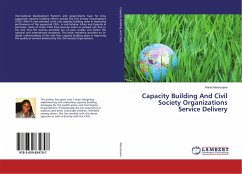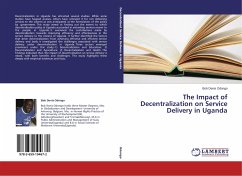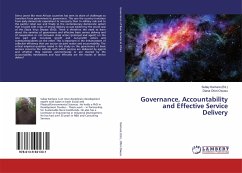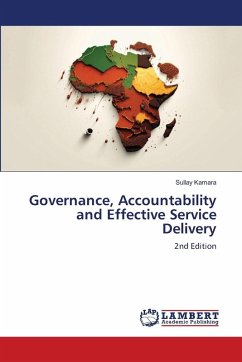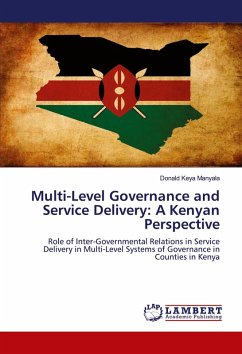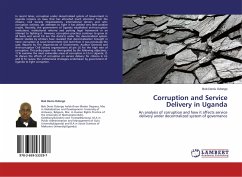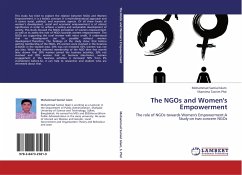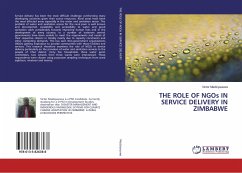
THE ROLE OF NGOs IN SERVICE DELIVERY IN ZIMBABWE
Versandkostenfrei!
Versandfertig in 6-10 Tagen
43,99 €
inkl. MwSt.

PAYBACK Punkte
22 °P sammeln!
Service delivery has been the most difficult challenge confronting many developing countries given their scarce resources. Rural areas have been the most affected areas especially in the water and sanitation sector. The problem of water and sanitation access for the rural poor is well known and documented. Availability and accessibility to water and good sanitation adds considerably towards improving human lives and in the development of every country. In a number of instances central governments have been unable to meet the requirements and needs of their respective citizens in totality mainl...
Service delivery has been the most difficult challenge confronting many developing countries given their scarce resources. Rural areas have been the most affected areas especially in the water and sanitation sector. The problem of water and sanitation access for the rural poor is well known and documented. Availability and accessibility to water and good sanitation adds considerably towards improving human lives and in the development of every country. In a number of instances central governments have been unable to meet the requirements and needs of their respective citizens in totality mainly due to capacity constraints and other competing demands. This has seen Non-government organizations (NGOs) getting inspiration to provide communities with those facilities and services. This research therefore examines the role of NGOs in service delivery particularly on the provision of water and sanitation services to the people of Chivi district. Forty five households, three water pointcommittees, two schools from three wards were interviewed. These respondents were chosen using purposive sampling techniques from ward eighteen, nineteen and twenty.



